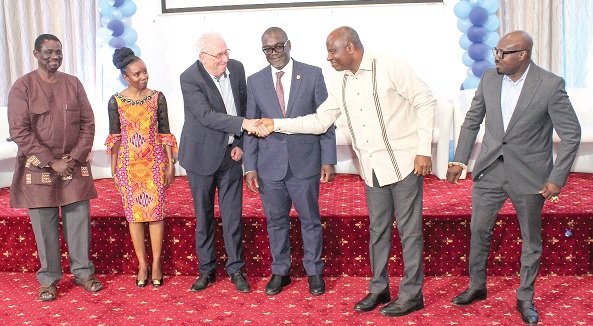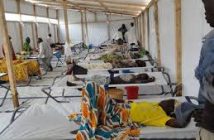|
Getting your Trinity Audio player ready...
|
An initiative to improve healthcare delivery in the country through the improvement in the skills of graduates and working professionals in the field of Biomedical Engineering (BME) has been launched in Accra.
On the theme: “Upskilling Biomedical Engineers for Ghana”, it is supported through the develoPPP funding programme implemented by GIZ on behalf of the German Federal Ministry for Economic Cooperation and Development (BMZ).
The project involves partnering, through a Memorandum of Understanding (MoU), with the University of Ghana (UG) and the Kwame Nkrumah University of Science and Technology (KNUST) to further modernise their courses.
In that regard, the curricula of both institutions would be reviewed and enhanced to reflect more practical content while lecturers and lab technicians would be trained to apply the practical modules.
The existing laboratories of the two universities would also be upgraded to make them more functional for use as training centres.
Already, 280 students from both universities have successfully completed one year of the modernised BME curricula.
The launch brought together biomedical engineering experts, students and faculty from universities offering BME courses, dignitaries from the Ministry of Health, Ghana Health Service (GHS) and the Ghana Institution of Engineering (GhIE), development partners as well as project partners.
Furthermore, on the theme, “Collaborations for BME Education, Practice and Regulation in Ghana”, stakeholders deliberated on how to advance the BME discipline in the country to benefit the health sector.
The develoPPP Team Lead, Dr Holger Till, said having worked in the nation’s health sector for decades, it was always very frustrating when unavailability or defectiveness of medical equipment became an impediment in the delivery of quality health care.
Therefore, he said, the project would help promote more innovative solutions which would enhance the efficiency of the technologies already in use, thereby improving the lives of patients living with various conditions in a variety of ways.
Dr Till added that the project, which had similarly been implemented in Kenya and Senegal, would work seamlessly because the country already had motivated and well-trained professionals accompanied by existing strong structures.
In a speech read on his behalf, the Chief Director of the Ministry of Health, Hafiz Adam, said the government had planned to build a state-of-the-art research and development centre where BME experts could invent medical devices using local materials.
“Currently, about 350 Biomedical Engineering Professionals have been employed in the public health sector with varying skill-set to support effective management of medical equipment deployed to support health service delivery,” the speech read by the Head of Biomedical Engineering Unit of the Ministry of Health, Nicholas Adjabe, said.
SDG Goal Three
The Director of Health Administration and Support Services (HASS) of GHS, Dr Ebo Hammond, said the intervention was crucial for the achievement of the United Nations Sustainable Development Goal Three, which has to do with healthy lives.
He said the partnership would help in the development, design, management, and maintenance of medical equipment, devices, and systems which was key in quality health outcomes.
Source: myghanadaily





